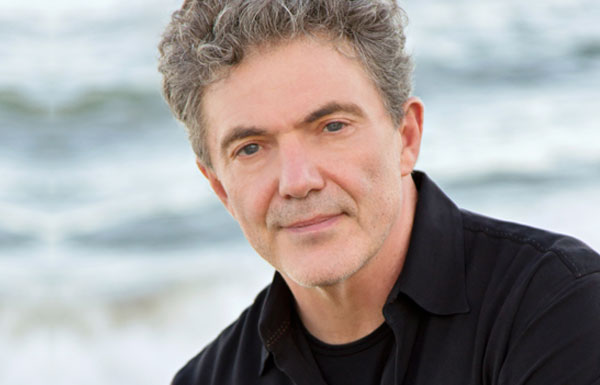Dan Tomasulo was the keynote speaker at this year’s Well-Being Conference on May 27th, 2015.
Would Your Life Be Better If You Owned More Things?
Be thankful for what you have; you’ll end up having more. If you concentrate on what you don’t have, you will never, ever have enough. ~ Oprah Winfrey
Materialists are those who have a central life focus on acquiring more things. They often relate their happiness directly to their possessions while declaring these goods as both the main source of life satisfaction and a symbol of their success in life. The answer they give to the above question is a resounding “yes” — More is always better for the materialist. But does accumulating stuff make them happy?
Previous research has shown that those who believe their material possessions determine their happiness are, in a word, wrong. In fact, rather than having a greater well-being, research has shown materialists are chronically dissatisfied and unfulfilled. As a group they experience greater loneliness, depression, anxiety, substance abuse, and low self-esteem.
New research confirms what we’ve known about the materialists — but with an interesting perspective. In the July issue of Personality and Individual Differences, Jo-Ann Tsang, from the department of psychology and neuroscience at Baylor University, and her colleagues asked a fundamental question: Why are materialists less happy?
The surprising answer seems to be that they are less satisfied with their lives because they lack gratitude. As Oprah Winfrey stated, they place an emphasis on what they don’t have rather than thankfulness for what they do. This inability to focus on what is positive and present in their life becomes a barrier to getting their psychological needs met, which in turn limits their life satisfaction.
The emptiness is fueled by a type of cycle that begins with an unrealistically high expectation of what a new possession will bring. In fact, in one prior piece of research, it was found that when compared to non-materialists, the materialists had higher levels of anticipation of a positive emotional response. When the expectation isn’t met by the material good, the expectation is dashed and the positive feelings drop.
Seeking out new things to buy becomes a way of desperately trying to activate or maintain positive feelings. But the result is chronic disappointment and less gratitude for what they already have.
The research on gratitude is extensive and dynamic. Two types of gratitude are often looked at: state vs. trait. State is the short-term experience, while trait refers to the frequency of experiencing it. As a positive emotion derived when a valued benefit has been, or will be, received, gratitude is the feeling or attitude that comes with acknowledgement, appreciation, or gratefulness.
Being able to have gratitude seems to have broad implications for well-being. It has been found to enhance self-esteem, life satisfaction, and prosocial behavior, and improve interpersonal relationships. It also seems to be related to autonomy, competency, and feeling connected to others. Major researchers in the field of positive emotions such as Barbara Fredrickson and Sonya Lyubomirsky have found it directly influences our capacity to broaden and build our positive emotions and see it as one of the main interventions that can lead to sustainable happiness.
The new research took the view that materialism would predict decreased trait gratitude and need satisfaction. The researchers hypothesized that it would be difficult to value materialism and gratitude at the same time, which means that as materialism goes up there would be a corresponding decrease in gratitude and the benefits associated with it — those with less gratitude would have unmet psychological needs.
The study looked at 246 male and female undergraduate marketing students who took self-report measures online of materialism, gratitude, need satisfaction, and life satisfaction. According to the authors, “Our results suggested that a considerable proportion of the relationship between materialism and decreased life satisfaction can be explained by the decreased gratitude that high materialists experience, and the resultant decreases in basic psychological needs.”
But the authors point out that their study does not, with certainty, show gratitude affects materialism in a causal way. More research will be needed to determine if that is the case.
However, the researchers offer some thoughts as to how they believe materialism and gratitude are connected: “We suspect that the relationship between materialism and gratitude is most likely bidirectional: increases in materialism can lead individuals to be less grateful for what they already have, but increases in gratitude might also lessen materialism and its detrimental effects.”
With this latter possibility in mind, it would seem to be a worthwhile activity to do things that increase the experience of gratitude. Direct interventions to increase gratitude have been effective in increasing well-being, and two well-researched methods are keeping a gratitude journal and writing letters of gratitude to those you wish to express gratitude toward. There are even some variations like the Virtual Gratitude Visit (VGV), which may also prove to be helpful.
There would also be the possibility of helping materialists get their psychological needs met in ways other than buying stuff. This would also seem to be a worthwhile effort, because as George Carlin says, “Trying to be happy by accumulating possessions is like trying to satisfy hunger by taping sandwiches all over your body.”
This blog entry can be viewed in it’s original location at PsychCentral.com‘s Proof Positive Blog: Would Your Life Be Better If You Owned More Things?
About Dan Tomasulo: Daniel J. Tomasulo, Ph.D., TEP, MFA, MAPP is a graduate of the Masters of Applied Positive Psychology (MAPP) program at the University of Pennsylvania and works as Martin Seligman’s assistant instructor there. He is a licensed psychologist specializing in group psychotherapy and psychodrama and is the author of the highly acclaimed Confessions of a Former Child: A Therapist’s Memoir. Visit www.formerchild.com for more information. He also writes for Psych Central’s Ask the Therapist column and the Proof Positive blog.


